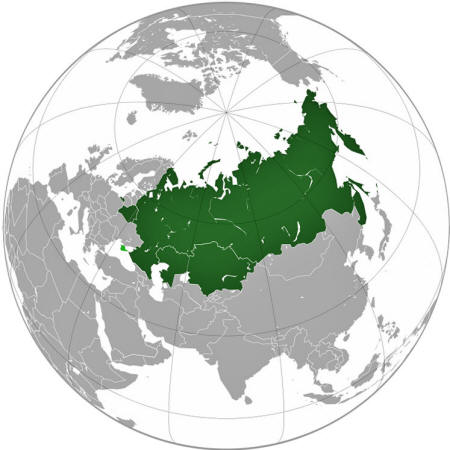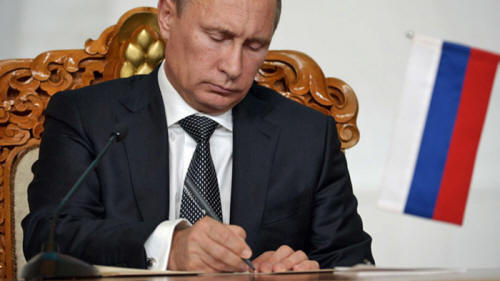|

03 October 2014
from
RapsiNews Website

MOSCOW (RAPSI)
President Vladimir Putin has
signed into law the ratification of the treaty on the Eurasian
Economic Union (EAEU),
RIA Novosti reports on Friday.
The treaty, which the presidents of Russia, Belarus and Kazakhstan
signed in May, seals the three countries' agreement on the
transition to the next stage of integration following the Customs
Union and the Common Economic Space.
The EAEU is aimed at completing the
creation of the largest common market in the CIS, with an aggregate
population of 170 million.
This common market should become,
"a new and powerful center of
economic development."
The
Federation Council, the upper house
of Russia's parliament, ratified the treaty on Wednesday.
The treaty will become effective in 2015 to boost the development of
trade, economic and cooperative ties, enhance the member-states'
economic competitiveness and strengthen their role in the global
economy.
Kazakhstan and Belarus are expected to
ratify the treaty before the trilateral meeting in Minsk in October.
President Putin said at the Russia Calling! Investment
Forum on Thursday that the number of this union's members would
grow, that Armenia is completing the process of accession to the
Eurasian Economic Union, and that the member-states are actively
negotiating with Kyrgyzstan.
He said that the EAEU would establish close ties with other
integration structures both in Europe and Asia.
"Such cooperation would add
stability to the global economy," the Russian president said.
Russia Completes Ratification of...
Eurasian Economic Union
-
Putin Signs Law -
October 03, 2014
from
RT
Website

Russian
President Vladimir Putin.
(RIA Novosti/Aleksey
Nikolskyi)
Russian President Vladimir Putin has signed a law ratifying a
historic treaty, committing Russia to an economic union with Belarus
and Kazakhstan.
The
Eurasian Economic Union will
come into effect in January 2015.
Putin's signature in the document puts the final dot in Russia's
ratification of the union which will be in place on January 1, 2015,
as the other union states are expected to complete ratification in
the next few days.
The economic union is the next step of integration within the
Customs Union between the three countries. The agreement had
previously been ratified by the Russian State Duma and the Federal
Council of Russia.
It will help cut trade barriers and be the largest common market in
the ex-Soviet sphere, comprising over 170 million people.
The troika of countries will cooperate
in,
-
energy
-
industry
-
agriculture
-
transport
The ruble will become the de facto
currency of the organization, although each country will still keep
their local currency.
Financial integration is a major part of the agreement, while
Russian, which is very widely spoken in both Belarus and Kazakhstan,
will be the working language of the union.
The headquarters of the union will be in
Moscow, with the courts in Minsk, and Almaty will be the home of the
financial regulatory body.
Citizens of Russia, Belarus, and Kazakhstan will have the right to
work freely throughout the member states without the need for a work
permit. Over the last three years trade within the Customs Union has
increased by $23 billion, or by nearly 50 percent.
At the end of 2013, it stood at $66.2
billion.
Belarus and Kazakhstan are in third place in foreign trade with the
Russian Federation, after the EU and China.
|



